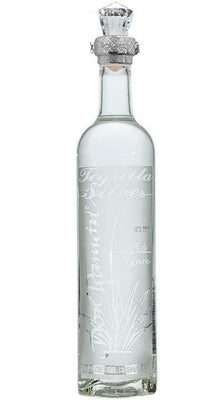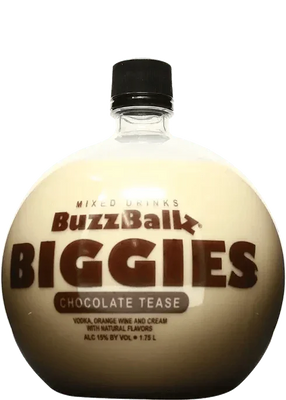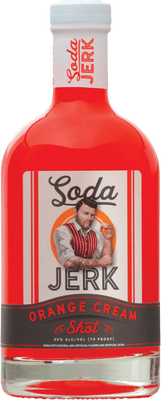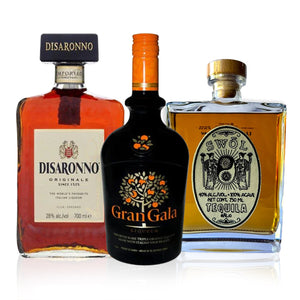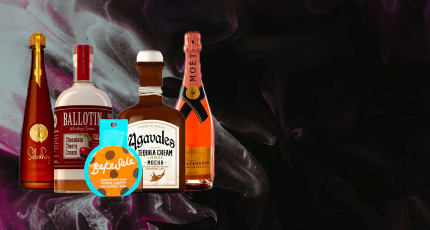Vodka is probably the least polarising spirit. Many people enjoy diving deep into the world of whiskey and tequila. They find innovative, artisanal products and develop a real hobby for them.
Vodka often gets overlooked in this vain. Not often thought of as a spirit deserving this kind of attention, it is often limited to espresso martinis, vodka lime sodas, and martinis. We disagree with this discrepancy.
There are so many stereotypes about vodka. That it is a drink for teenagers or drunk straight out of the bottle by Eastern Europeans. However, there are many things not widely known about vodka. We would like to share some vodka facts that might encourage you to explore the world of vodka further.
Medical usage
With its high percentage of alcohol spirit content, vodka is a great antiseptic and also perfect for disinfecting. You can clean your house with it but also your wounds. Vodka was widely used in the past to treat soldiers in many wars.
Vodka was also often given in large quantities to the wounded soldiers as an anesthetic. If you have a toothache and you need an urgent solution, vodka would serve you well. It’s also good for your heart when consumed responsibly and in moderation. If your skin pores need a deep clean, use vodka as a toner and detoxify your skin. And this is just a small amount of things vodka is beneficial for.
Not All Vodka Is Made From Grains
There is a variety of plants that vodka is made from, some of which even sound unbelievable. Vodka could be made from any plant rich in starch or sugars, it’s that simple. The most popular vodka on the current market is produced from grains like sorghum, corn, rye, or wheat, and it is lighter in taste.
Vodka made from rye or wheat is one of the ones with the highest quality. There are also many vodkas made from potatoes which give a creamier taste; also from molasses, soybeans, grapes, rice, sugar beets, and some unbelievable products like byproducts of oil refining or wood pulp processing.
Expiration Date
Have you ever found yourself in a situation to find long-opened alcohol around the house? Do you wonder if vodka ever does bad? One of the best vodka facts is that vodka doesn’t go bad. If you leave your bottle closed you can be sure your grandchildren could be able to enjoy it one day! Vodka is a very stable spirit but bottles of vodka aren’t perfect, hermetically sealed. This means that over time the vodka will have contact with the outside air and it will very slowly lose its taste and alcohol content. For this oxidation to properly happen, it’d need between 40- 100 years.
If your bottle is opened though the seal will be already weaker which would drastically decrease the number of years for changes to occur- 10- 20 years, which is technically still a lot of time!
Russia and Vodka
Most people’s first association when they hear vodka is “Russia.” If you ever go to Russia, check out the vodka museum in St. Petersburg where you can enjoy exhibits on the history of vodka, with guided tours, tastings, and a restaurant.
The biggest reason why vodka became so popular in Russia was because of its ability to stay liquified even in the coldest regions below the zero temperatures of northern Siberia.
Another crazy vodka fact is that all residents of Moscow once drank all the vodka in the city, for around 24 hours! This happened on May 9, 1945, when the USSR heard that Nazi Germany had surrendered to the Soviet Union. So they went to celebrate in the middle of the night.
Great for Cooking
Vodka is a great ingredient for cooking and many recipes can be easily improved by adding vodka to them. Vodka can add a little kick to your recipe but if the vodka is cooked the alcohol burns off and turns into an emulsifier between oil and water.
Vodka sauce is a pasta sauce used for Penne Alla vodka- a classical Italian pasta dish. The sauce is made from tomato sauce, cream, and vodka. It started being popular in the 1970s. Vodka can be used in baking instead of water, where vodka keeps the gluten from breaking down, creating a flaky texture. Vodka is also great in seafood dishes and cheesecake.
It’s actually good for you
Vodka keeps your cholesterol low and your arteries healthier when consumed in moderation. It increased blood- flow and circulation which can prevent clots, heart attacks, and strokes. Another great vodka fact is that helps against colds, and fevers, and even helps with Alzheimer’s.
You may know that red wine is the ultimate relaxer, but it's not as good as vodka according to studies that have shown that vodka relieves tension better than wine.
When taken straight or with ice vodka can reduce blood sugar levels whereas beer and wine increase them.
One Shot = 100 Calories
For those of you who are watching your weight, vodka is considered to be а lower-calorie alcohol. This colorless and high on taste drink contains only 100 calories per shot as it doesn’t contain many sugars at all and is used to help with weight loss and diabetes.
Alcohol content
Vodka is distilled to the strength of 90% alcohol content but the alcohol content in the commercially sold vodka is between 35% to 60%. Since the 1890s, standard vodkas started being around the standard of 40% alcohol by volume. The European Union countries and the United States established а demand of minimum 40% of alcohol content in vodka.
There are so many more interesting facts about vodka out there! Stay curious!




